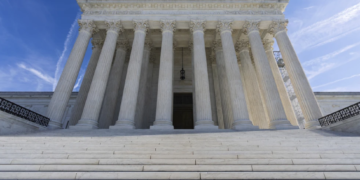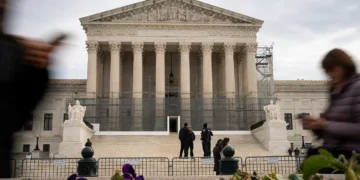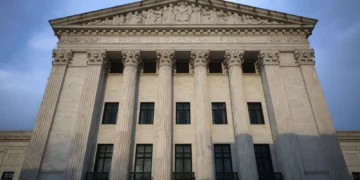Jan 28, 2025 Story by: Publisher
WASHINGTON (AP) — The Supreme Court on Monday, January 27, declined to intervene in Mississippi’s practice of revoking voting rights for individuals convicted of specific felonies, including nonviolent offenses like forgery and timber theft, a policy dating back to the Jim Crow era.
Without providing any comments, the justices turned down an appeal from Mississippi residents who had completed their sentences but remained barred from voting.
This decision upholds a previous ruling by the full 5th U.S. Circuit Court of Appeals, which dismissed claims that the permanent loss of voting rights constituted cruel and unusual punishment under the Constitution. The appellate court stated that it was up to Mississippi legislators—not the judiciary—to amend these laws.
Earlier efforts to bring the issue of felon disenfranchisement before the Supreme Court in 2023 were also unsuccessful. At the time, Justice Ketanji Brown Jackson, joined by Justice Sonia Sotomayor, dissented, arguing that Mississippi’s list of crimes was “adopted for an illicit discriminatory purpose.”
No justices dissented from Monday’s decision to leave the law intact.
Mississippi’s laws mean most affected individuals lose their voting rights for life, with limited pathways for restoration. Lawyers for the plaintiffs described the state’s policy as a relic of segregation, noting that the provision in Mississippi’s 1890 constitution specifically targeted crimes that its drafters believed were more likely to be committed by Black residents. However, the state countered that the Supreme Court has previously ruled that states are permitted to deny voting rights to individuals convicted of felonies.
Mississippi, where approximately 38% of the population is Black, has disenfranchised nearly 50,000 people under its felony voting ban between 1994 and 2017, according to an expert analysis. Of this group, more than 29,000 individuals have completed their sentences, with 58% of them being Black.
Restoring voting rights in Mississippi requires a pardon from the governor or a two-thirds majority vote in both the state House and Senate. Yet, in recent years, only a handful of people have had their voting rights restored through these measures. Source: US News

















